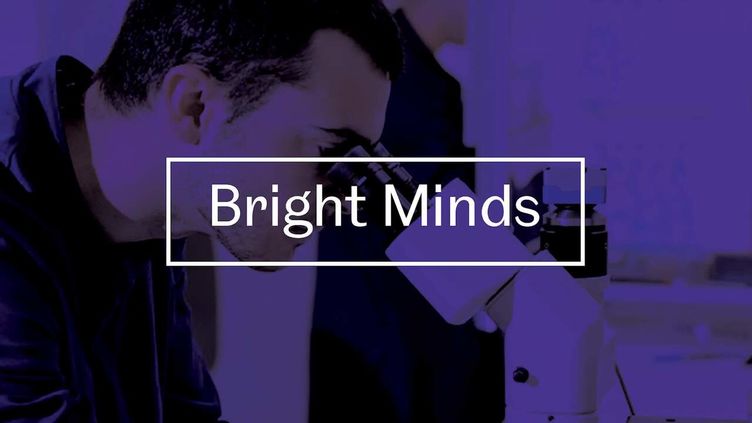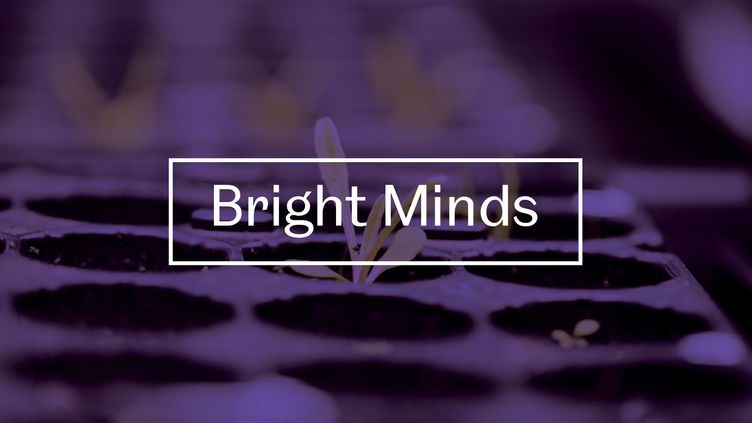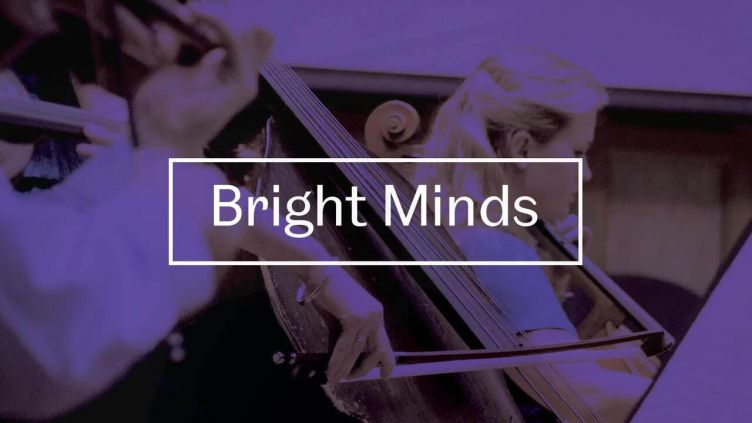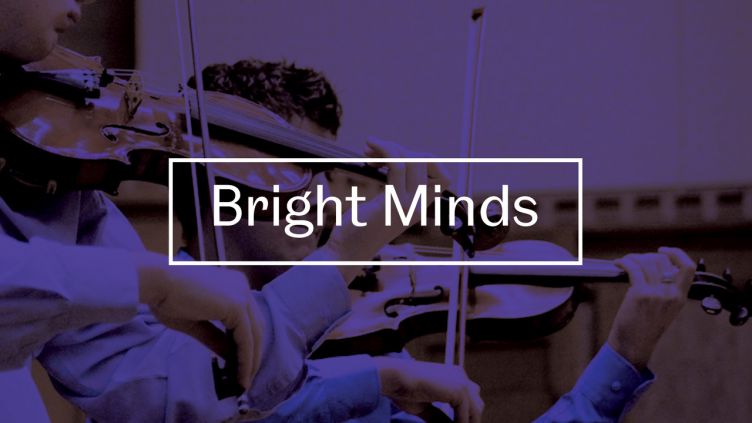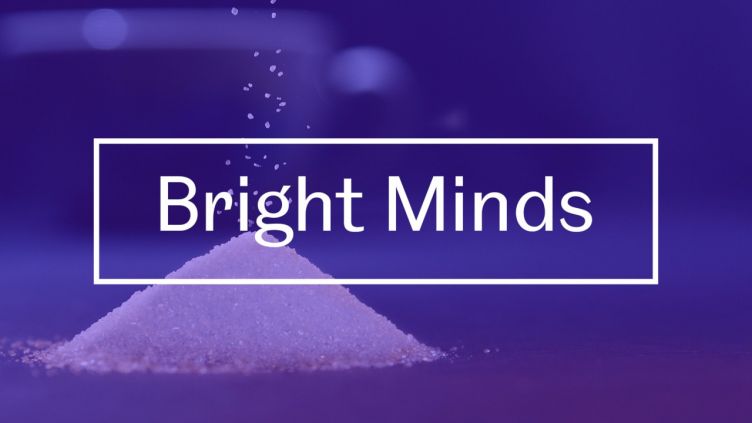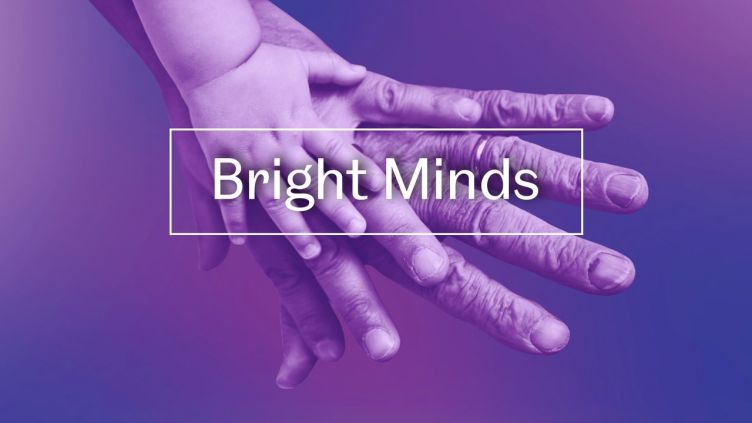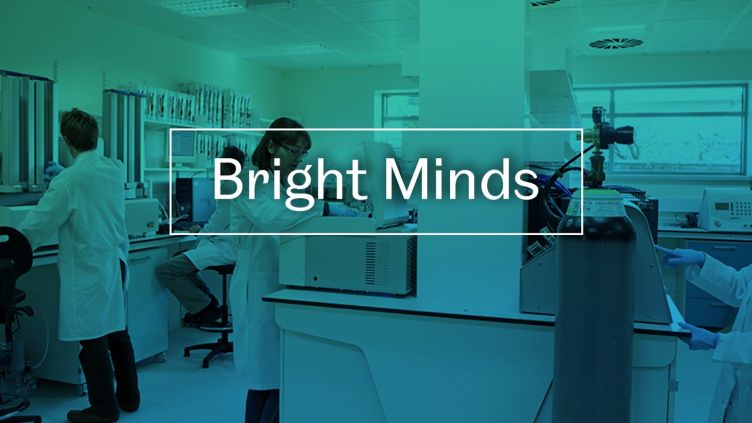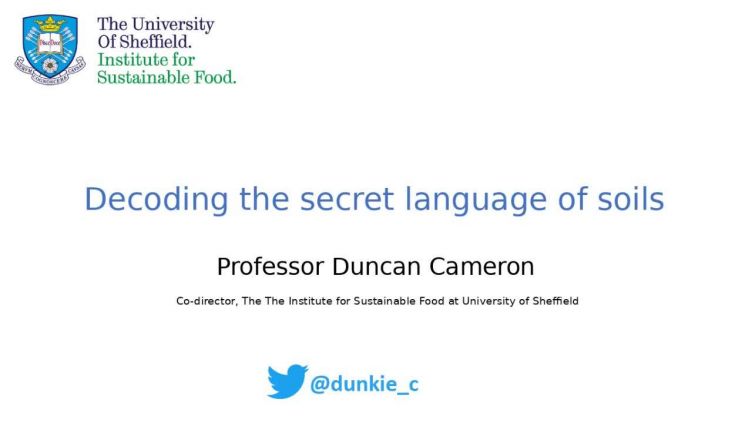Bright Minds
Hear from ∫˘¬´”∞“µ's best and brightest minds as they share their PhD research in bitesize talks accessible to all.

We want you to be the first to hear about the new and exciting research coming out of your University. And who better to tell you about it than the researchers themselves!
Throughout the year, you are invited to attend a series of short, online, TED-style talks, across a range of research topics, from some of ∫˘¬´”∞“µ‚Äôs most talented PhD students.
Take a look at the lineup, and register to join below.
Scroll further to find recordings of previous Bright Minds webinars
Upcoming talks
More from ∫˘¬´”∞“µ's PhD students coming soon!
Previous talks
Bright Minds - What's the point of a pint without alcohol in it?
The UK is experiencing unprecedented numbers of people dying from alcohol-related illnesses. Alcohol-free and low-alcohol (no/lo) drinks have surged in popularity and have been promoted by the UK Department of Public Health as a public health strategy. However, there is evidence that these drinks are more commonly consumed by the socially advantaged.
Hear from PhD student Lucy Burke as she explores the links between why we drink alcohol, who is drinking no/lo drinks and the implications of health inequalities.
Bright Minds - Cognospeak
Hear from Cognospeak: a multidisciplinary project bringing together researchers from Computer Science and Neuroscience to develop a new AI tool that could help doctors spot the early signs of dementia.
Join researchers Caitlin Illingworth and Madhu Pahar as they share insights into their own research.
Bright Minds - Piecing together the MND puzzle: from genetic discoveries to new treatments
Motor Neurone Disease (MND) affects up to 5,000 adults in the UK at one time. A person's lifetime risk of developing MND is up to 1 in 300.
This debilitating disease, which affects the brain and spinal chord, attacks the nerves that control movement so muscles no longer work. There is currently no cure.
Join Dr Tobias Moll in this online webinar to explore his MND research and how genetic discoveries are helping to identify new treatments to combat MND.
Bright Minds - Cementing the Future of Radioactive Waste
The UK has world-leading facilities to handle, process, condition, and package nuclear waste; but how can we ensure that it is disposed of safely? And where does our radioactive waste actually go?
Join Ava Sjoberg for an online webinar to discuss cement encapsulants and how this fits into the process of safe disposal of radioactive wastes in the UK.
Bright Minds: Together in Music
We often listen to music to relax or with friends while socialising. But have you ever thought about what your choice of music says about your cultural identity or emotions? Or what your ability to synchronise with others might say about your levels of empathy?
Bright Minds: The Power of Music
Music is often thought of as a recreational activity, enjoyed by those who engage with it by listening to and/or making music to enhance general wellbeing. But can music be used to aid us further, helping us to find solutions to everyday problems? Watch our talk from two of our PhD students from the Department of Music and Psychology.
Bright Minds: Sweetness and Fairness
Bettina Zenz shares her research into sugar intake in Western diets and the associated health inequalities between different sections of society. Bettina is joined by Professor Peter Jackson, Co-Director of the Institute for Sustainable Food. The talk draws on current research, funded via the Grantham Centre for Sustainable Futures and based in the School of Clinical Dentistry at the University of ∫˘¬´”∞“µ.
Bright Minds: The Science of Healthy Ageing
Can drugs and our DNA have an impact on the negative effects we experience as part of the ageing process? And can this change the way we age in the future? Join PhD students Ruth Thomas and Jeremy Richards to discuss how their research is affecting the way we age.
For more information on the research taking place in this area, please visit ∫˘¬´”∞“µ‚Äôs Healthy Lifespan Institute page.
Bright Minds: Climate policy in urban areas - The potential and limits of co-production
Join Dr Ryan Bellinson and Professor Beth Perry as they discuss how their research has provided insights into the role of the public in urban climate policy, and how cities can 'co-produce' meaningful climate action.
Bright Minds: Neuroscience
Introduced by Dr Heather Mortiboys, join Dr Simon Bell and Dr Tom Payne as they talk about their research into Alzheimer's Disease and Parkinson's Disease.
- 'How can the brain's relationship with sugar help us develop new treatments of Alzheimer's disease?' by Dr Simon Bell
- 'The UP Study: Developing new treatments and designing future trials for Parkinson's.' by Dr Tom Payne
For more information on the research taking place in this area, please visit ∫˘¬´”∞“µ‚Äôs Institute of Neuroscience and ‚Äôs pages.
You can also read more about our Parkinson's disease research fundraising appeal.
Bright Minds: Food Security
Introduced by Professor Duncan Cameron, co-director of our Institute for Sustainable Food, join Mary Eliza for her talk on 'Can we solve global warming, acid rain and smog all at once?'.



